The Crusoe Revisited: NetBSD
17 Jul 2021 - faintshadows
Yeah, I'm back on my BS.
(This is part of a series of posts regarding my revisit of the Fujitsu Lifebook P1120 that I got a few months ago, with the Transmeta Crusoe processor. As new posts come out, I'll add links to the other parts here.)
As I start writing this, it's 1AM local time, and I'm going to take you all on the adventure with me as I install NetBSD on the cursed Crusoe.
After uh, a couple months of not doing nearly anything with computers, I'm tryin' to get back into doin my signature stupid stuff with 'em.
After making sure the Crusoe still boots, I grabbed the NetBSD 9.2 i386 img. I thought about doing a network install, and not deal with USB 1.1 speeds, but actually, I'd much rather it Just Work, and not faffiing about with booting a BSD kernel from PXELINUX sounds quite nice.
I used Plop Boot Manager, booted off PXE to do anything with the Crusoe, and it's worked well enough for my purposes.
First messup, I forgot to gunzip the install image before DD'ing to the USB.
This doesn't bode well (Foreshadowing!)
After another flash of the USB, it boots!
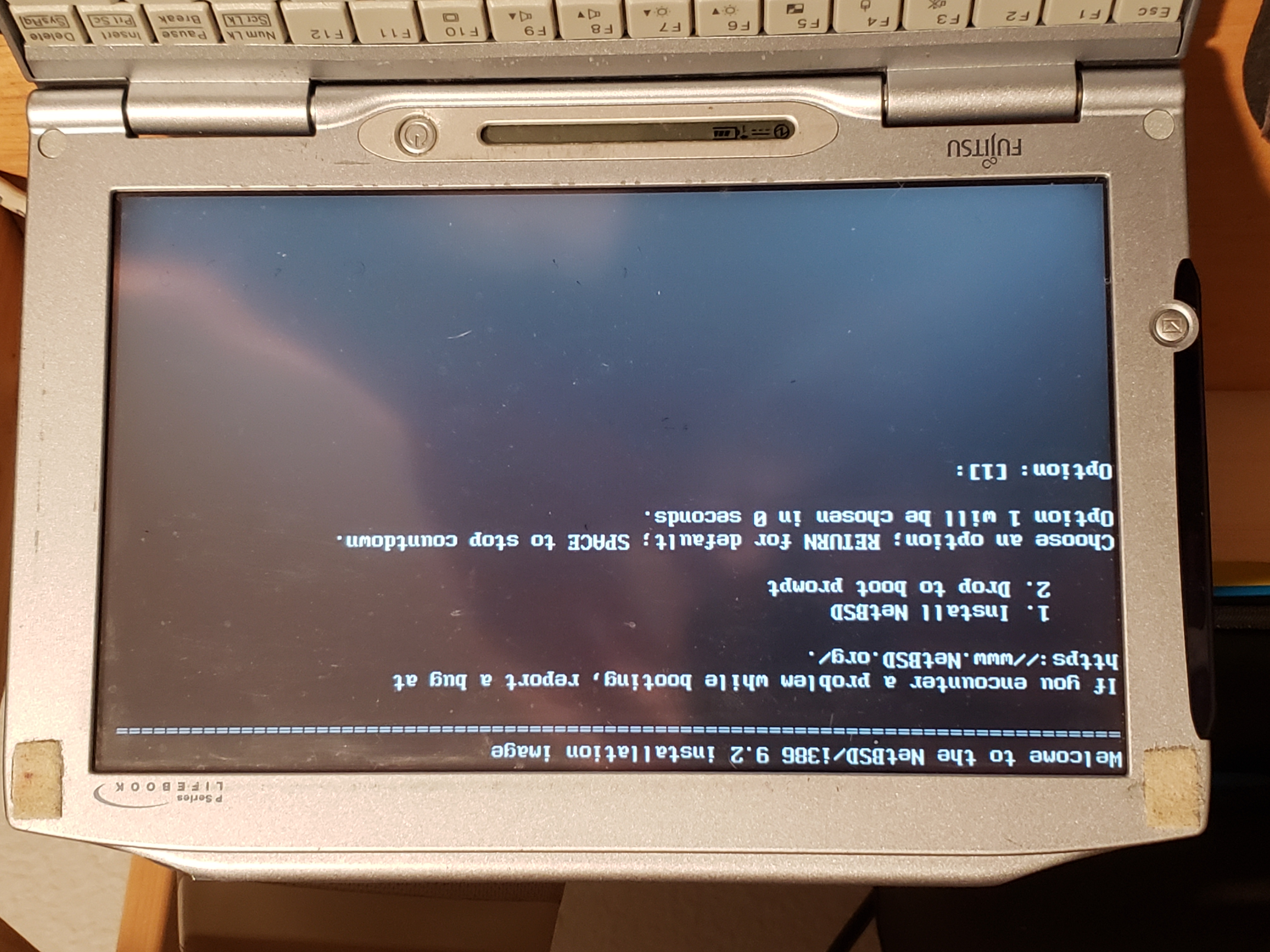
Installation was smooth, it does indeed see the USB, so Plop did its thing correctly. Partitioned the drive, and off to install the sets. I'm impressed with the untar speeds, we got over 4 MiB/s! I don't know if the speed metric is based on the storage media or the cpu ungzipping the sets.
After the package sets are done, it makes device nodes, and tells us that installation is complete!
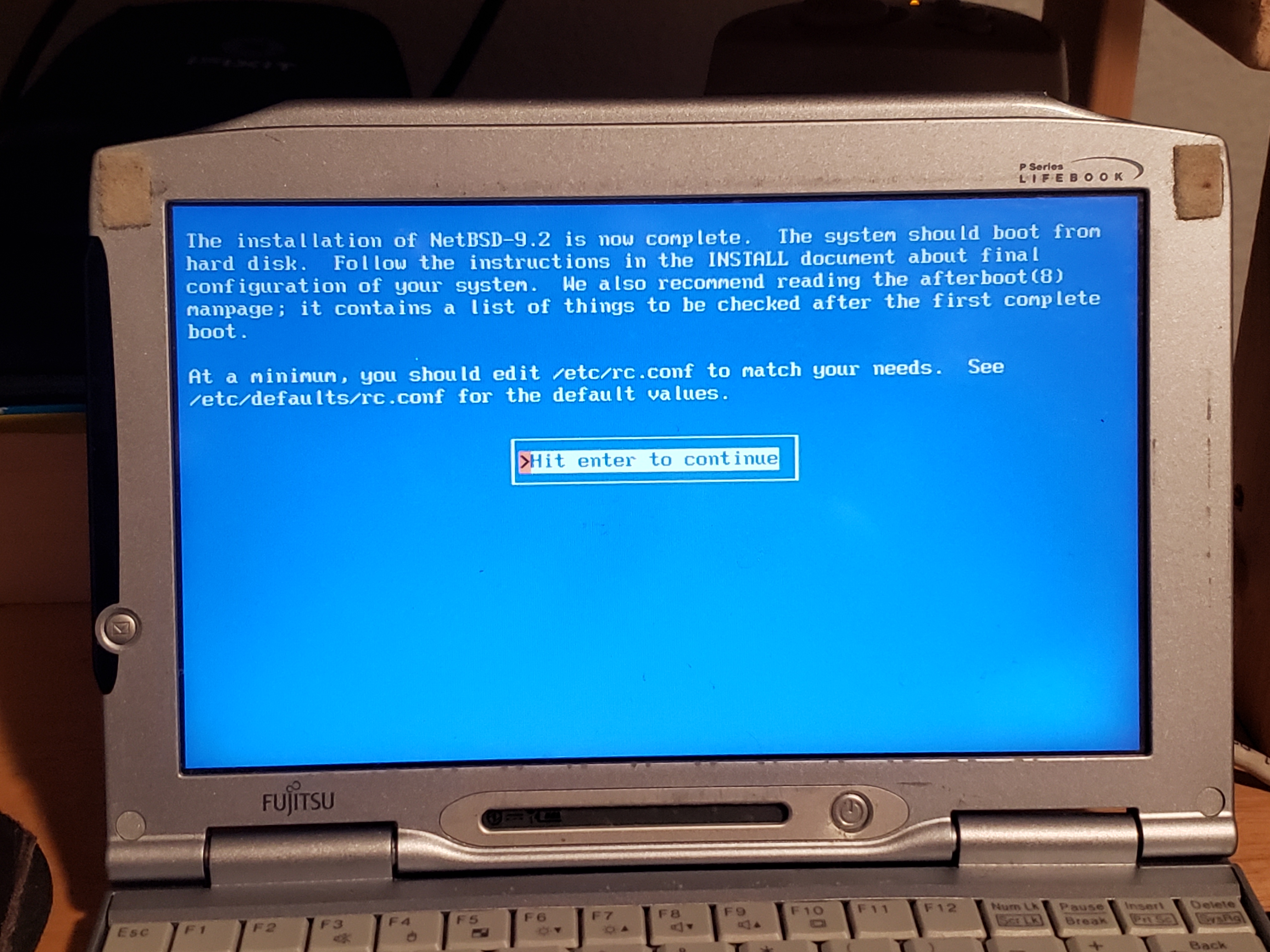
Onto the configuration of the system, I did notice when looking at the hardware requirements for NetBSD that the Intersil Prism wireless cards are supported, and it just so happens that what this laptop has in it. I'm configuring only ethernet for now, but I definitely want to see if I can get on modern WPA2 networks with this thing.
With the network configured, I added the package repositories so I can install
more packages later on. Just gotta run pkgin install <packagename>
(I'm definitely not putting this here for when I forget)
I also installed pkgsrc, you never know…
I changed the services that start on boot, I don't need raid stuff or crypto. And with that, the first reboot!
It managed to boot, perfect. Taking its time, but it's updating caches and all that fun stuff. After a concering graphics glitch as X started, we have XDM and a X session! Right out of the box, phew.
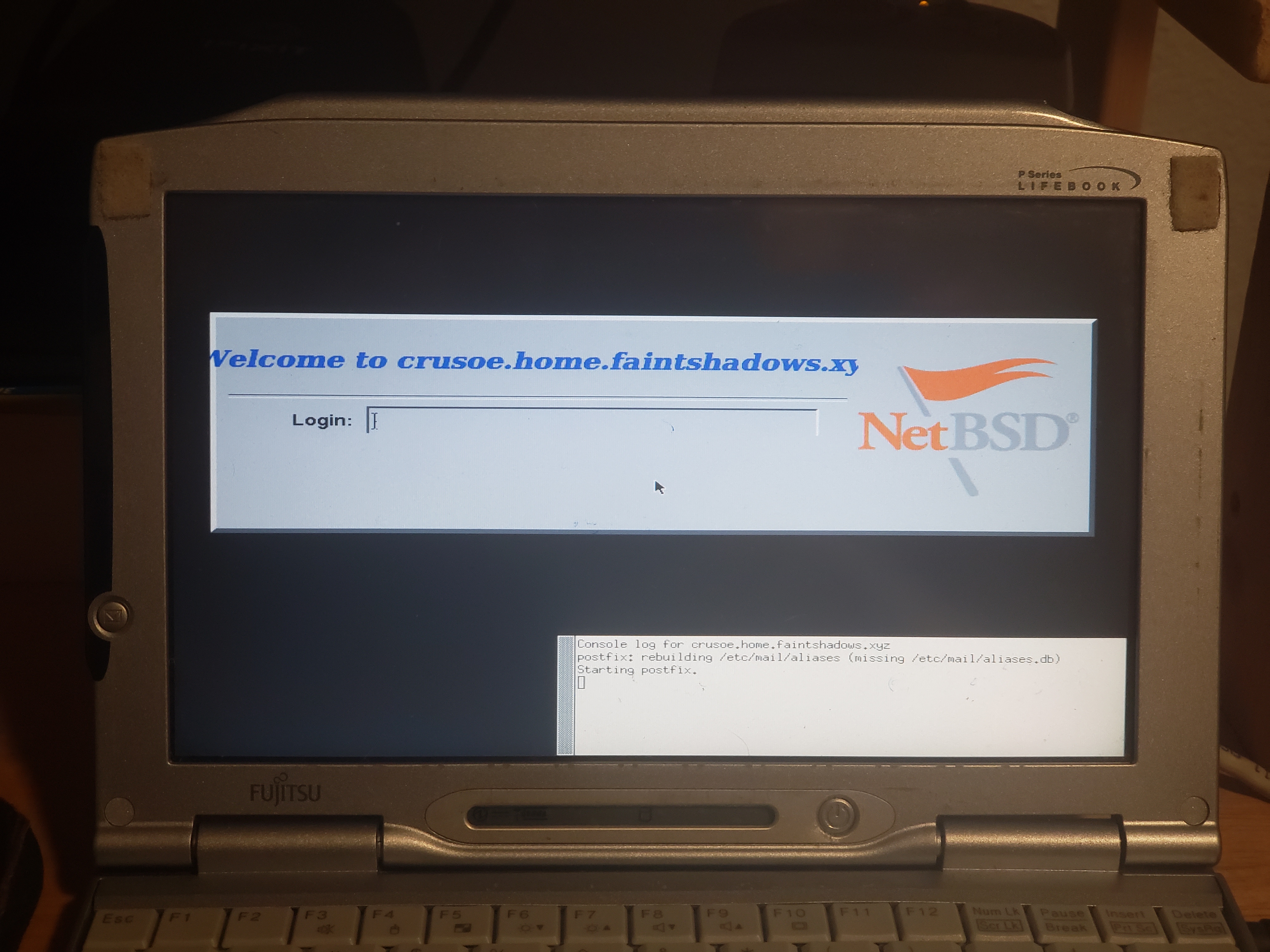
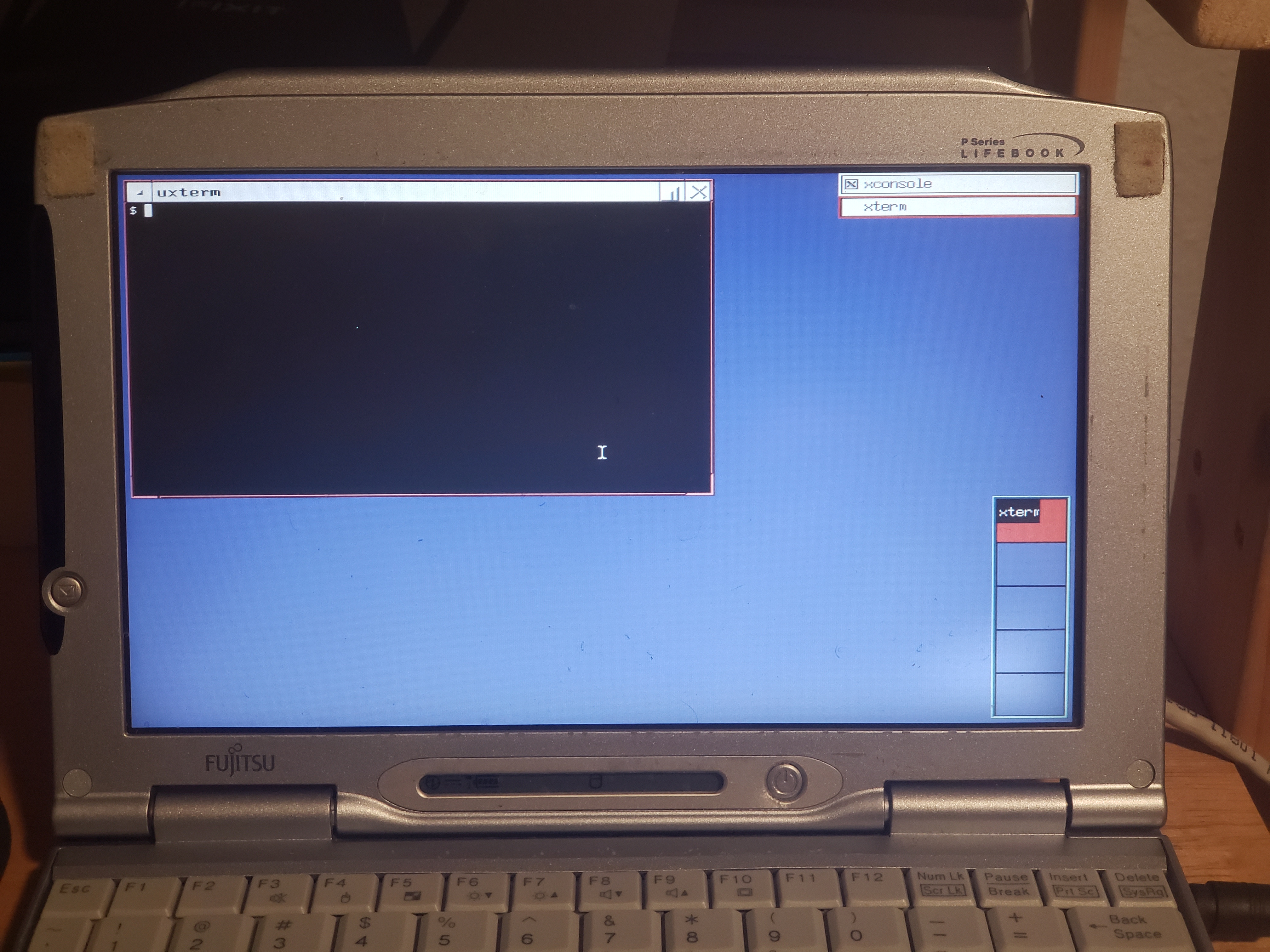
NetBSD doesn't come with curl or wget, but a quick run of pkgin and I had
those and our boy neofetch
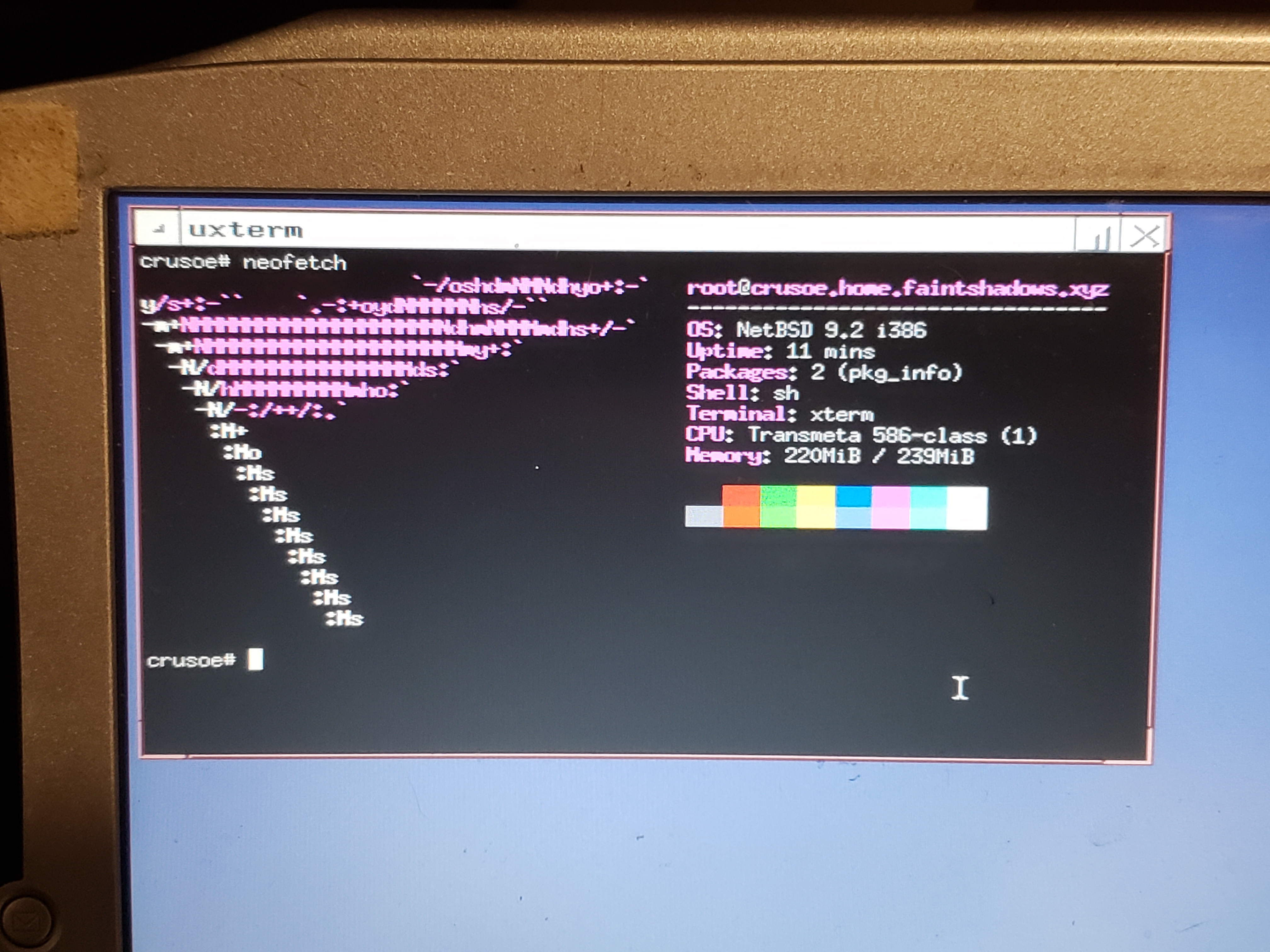
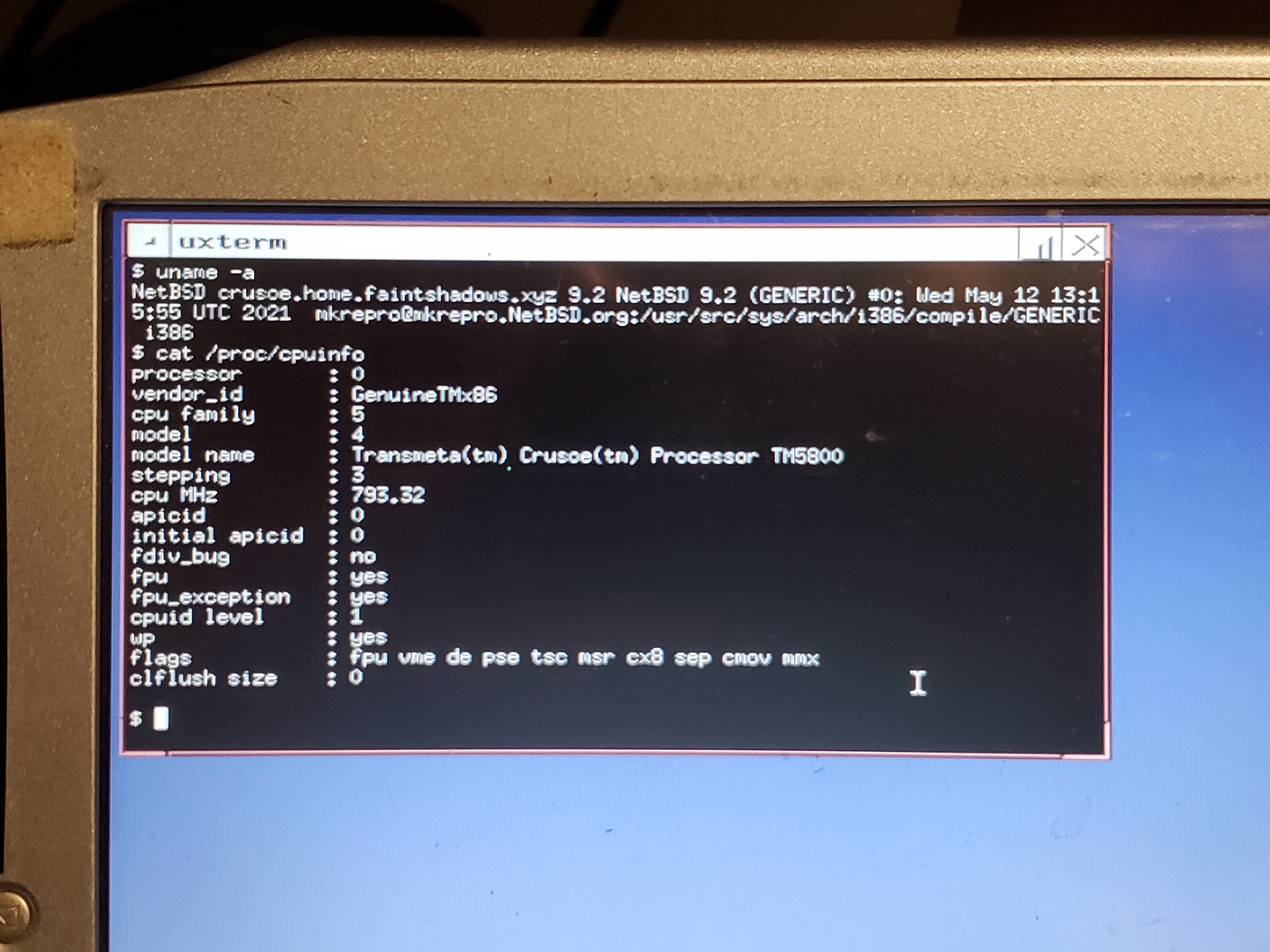
Not a fan of almost all my RAM being used out of the gate, but after checking
/proc/meminfo, it's all just caches.
As of this point in writing, it's 2:34AM. I'm going to bed but I'm glad the Crusoe never crashed or gave me any issue. A very nice change of events.
After some rest, I booted back in, and so far at least two things don't seem to work, WiFi and the audio. NetBSD sees both, but the wireless can't find any networks. That may be down to it not supporting WPA2 in the slightest.
NetBSD comes with ctwm by default, but I'm not sure if I want to use that
long term. I looked at all the WM options in pkgsrc, and I saw mlvwm,
the Macintosh-Like Window Manager. The screenshot on the site looked great,
but after installing it, there was a lot left to be desired.
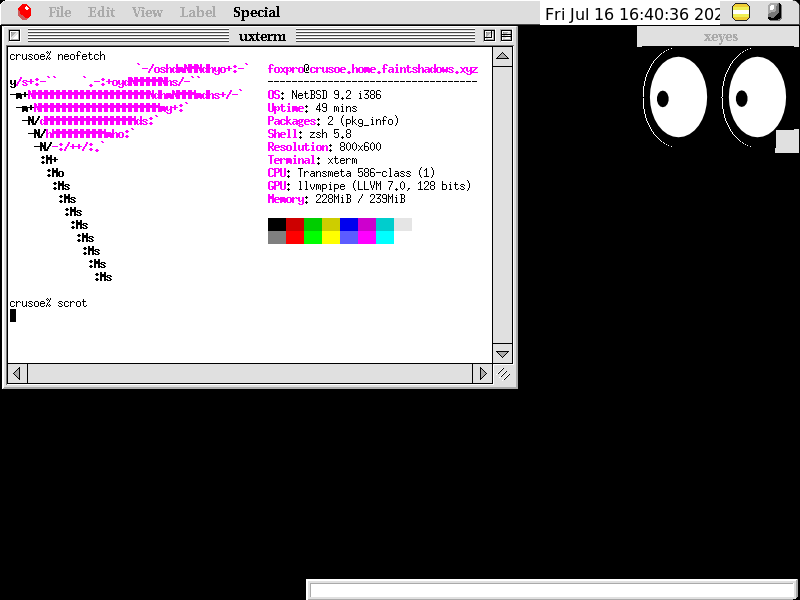
I won't be using mlvwm on this, I will be looking for a different WM to
use.
I did notice that it says llvmpipe for the GPU, meaning that yet again
I have no GPU acceleration here. Check the GENERIC kernel configruation
and lo and behold, radeon is disabled. Great!
I can't avoid compiling kernels, can I. I don't think its possible at all
to compile a NetBSD kernel on Linux, so I'm left to twiddle my thumbs while
the Crusoe burns away making a new kernel. Hopefully with proper radeon
support.
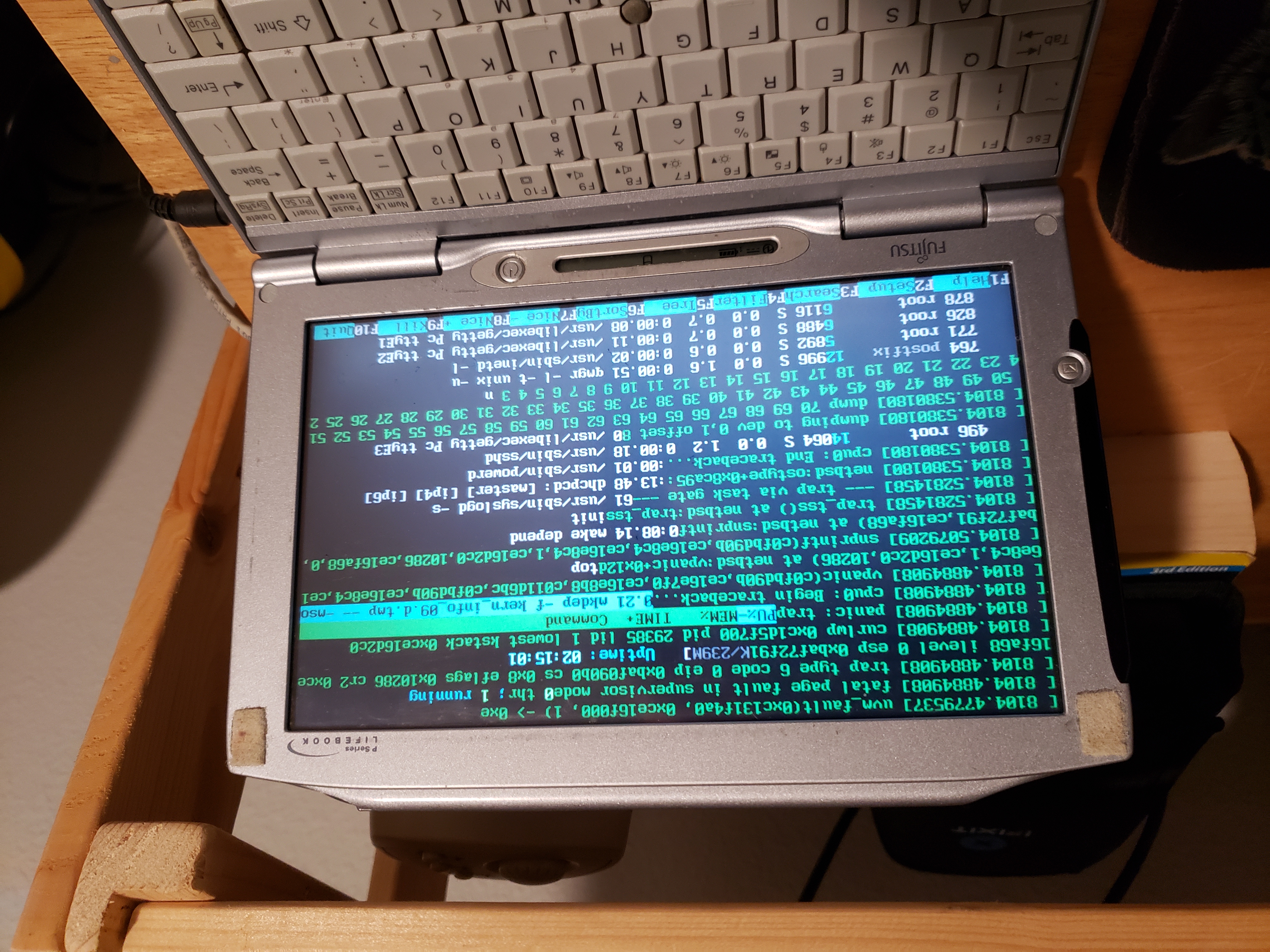
Yeah that went well. We're back to The Crusoe Experience(tm).
I let it run Memtest86+ overnight, and after 16 hours of memtest, there were no issues, no errors, nothing. This leads me to believe the thermals on the CPU is the issue. It could be the CPU itself, but I don't want to think about that.
I'm calling it for this post, I'll be making another one looking more into the thermal solution, and what can be done to improve it (if anything). After that, a follow-up to this post will be made.
Update: 2021-07-18 In experimenting with the thermals, I got it stable enough to try compiling the kernel again. But after 3 hours, it failed! It didn't crash, but the compile itself failed. Trying to enable the radeon support causes issues that I am not capable of understanding, and the internet has not been useful.
For now at least, I'm going to move back to Linux, and use a time appropriate distribution. One that was confirmed to work not only on a Crusoe, but this exact same laptop.